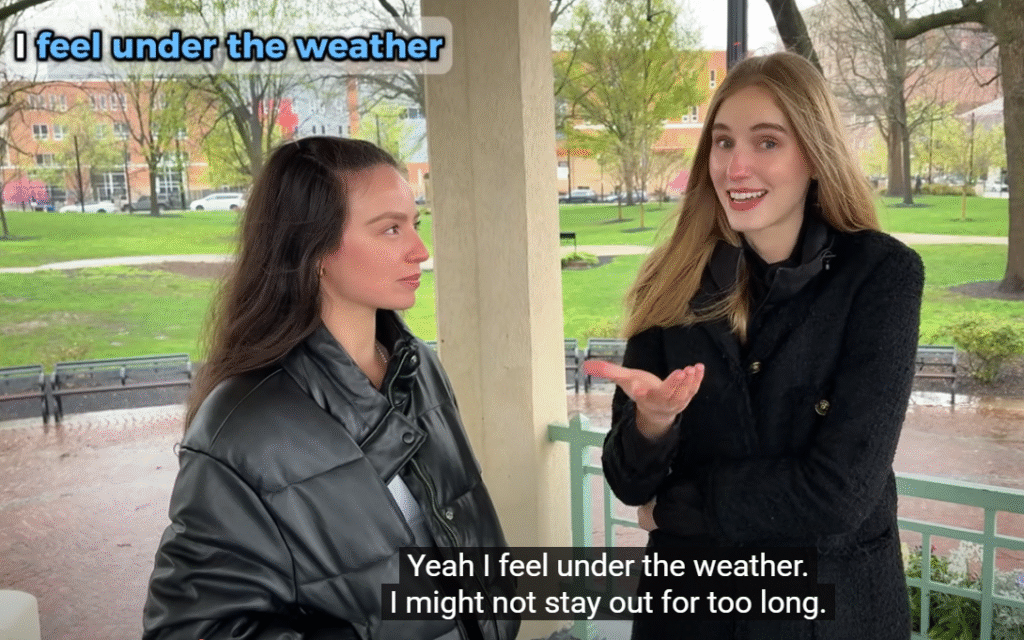The English language is filled with colorful expressions that make communication more vivid, emotional, and fun. Idioms are phrases where the meaning isn’t obvious from the individual words, and they often reveal a lot about culture and humor. Over the years, I’ve collected some favorites that I love using because they make conversations more lively and expressive. Here are my 20 favorite idioms in English, along with what they mean and how you can use them!

1. Break the ice
Meaning: To start a conversation in a social setting and make people feel more comfortable.
Example: “At the party, he told a funny story to break the ice.”
2. Bite the bullet
Meaning: To accept something difficult or unpleasant.
Example: “I don’t like going to the dentist, but I’ll have to bite the bullet and go tomorrow.”
3. Hit the nail on the head
Meaning: To describe exactly what is causing a situation or problem.
Example: “When she said the team lacked motivation, she really hit the nail on the head.”

4. Piece of cake
Meaning: Something very easy to do.
Example: “The test was a piece of cake!”
5. Let the cat out of the bag
Meaning: To reveal a secret accidentally.
Example: “He let the cat out of the bag about the surprise party.”
6. Under the weather
Meaning: Feeling ill or sick.
Example: “I’m feeling a bit under the weather today, so I’m going to rest.”

7. When pigs fly
Meaning: Something that will never happen.
Example: “Sure, he’ll clean his room — when pigs fly!”
8. Costs an arm and a leg
Meaning: Very expensive.
Example: “That luxury car costs an arm and a leg.”
9. Kill two birds with one stone
Meaning: To accomplish two things at once.
Example: “By visiting my parents, I killed two birds with one stone — I got to see them and picked up my mail.”

10. Once in a blue moon
Meaning: Something that happens very rarely.
Example: “We go out to a fancy restaurant once in a blue moon.”
11. Burning the midnight oil
Meaning: Working late into the night.
Example: “She was burning the midnight oil to finish her project.”
12. Barking up the wrong tree
Meaning: To make a wrong assumption or pursue the wrong course.
Example: “If you think I’m the one who broke the vase, you’re barking up the wrong tree.”

13. The ball is in your court
Meaning: It’s your turn to make a decision or take action.
Example: “I’ve done all I can; now the ball is in your court.”
14. A blessing in disguise
Meaning: Something that seems bad at first but turns out to be good.
Example: “Losing that job was actually a blessing in disguise — it led me to a much better career.”
15. Throw in the towel
Meaning: To quit or give up.
Example: “After several failed attempts, he finally threw in the towel.”
16. Burn bridges
Meaning: To destroy relationships or opportunities permanently.
Example: “Be careful not to burn bridges with your coworkers when you leave your job.”

17. Hit the sack
Meaning: To go to bed.
Example: “I’m exhausted; I’m going to hit the sack.”
18. Jump on the bandwagon
Meaning: To join others in doing something popular or trendy.
Example: “Everyone’s starting a podcast these days, so I decided to jump on the bandwagon.”
19. Kick the bucket
Meaning: A humorous or light-hearted way to say someone has died.
Example: “The old farmer kicked the bucket at 98 years old.”
20. Spill the beans
Meaning: To reveal a secret.
Example: “Come on, spill the beans! What’s the big surprise?”
Why I Love Using Idioms
Idioms bring so much color and emotion to everyday conversation. Instead of simply saying “I’m tired,” you can say “I’m ready to hit the sack,” which paints a clearer and more engaging picture. Idioms make language richer, funnier, and more relatable.
They also help connect people culturally. Many idioms have fascinating histories behind them, often linked to old traditions, habits, or even professions. Learning and using idioms is a great way to sound more like a native speaker and to understand movies, books, and casual conversations better.



